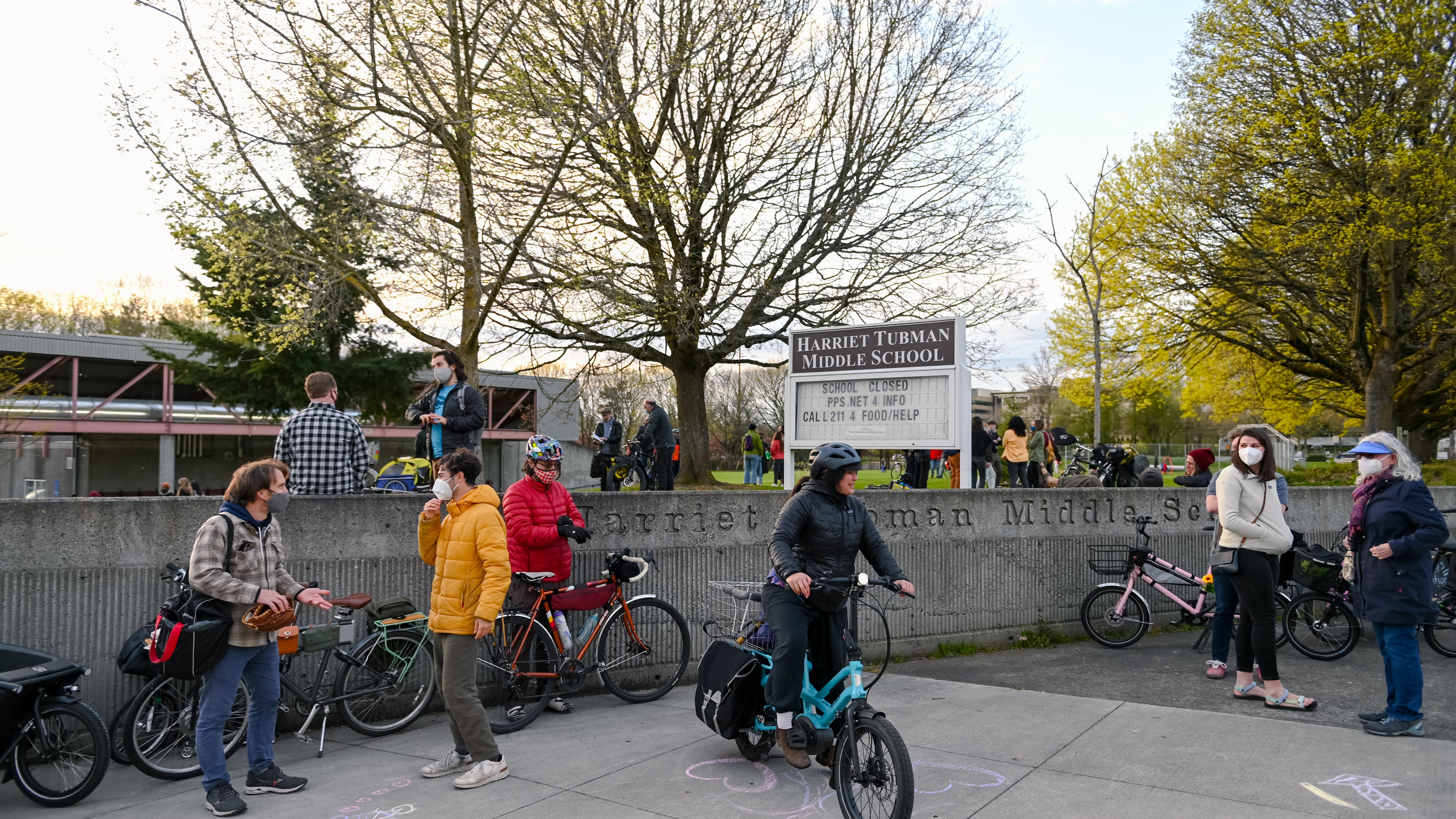What once seemed like a long shot for Portland Public Schools is close to fruition as lawmakers move toward approval of an end-of-session funding package that includes $120 million in general fund dollars to build a new Harriet Tubman Middle School.
The expenditure, which was a top priority for Gov. Kate Brown, is tucked into a 34-page list of expenditures and budget reconciliation items that lawmakers are expected to consider as a whole after it cleared the Joint Committee on Ways and Means Feb. 28.
“This was an opportunity for the state to do the right thing—and we are still waiting for the final votes—but this is a case where Gov. Brown and legislative leaders delivered,” says Portland Public Schools Board member Julia Brim Edwards.
Not long ago, prospects for Tubman looked bleak.
The school, located at 2231 N Flint Ave., sits just north of Interstate 5 in the Rose Quarter. It opened in 1952 as Eliot Elementary, long before I-5 split the adjacent neighborhood. Portland Public Schools renamed the school after Harriet Tubman, the abolitionist and Underground Railroad conductor in 1982. The school closed in 2012, not because of environmental concerns about emissions from the nearby freeway but because of declining enrollment and school consolidation.
Then came a scandal about lead in Portland Public Schools drinking fountains, which raised awareness of environmental hazards. When PPS moved toward reopening Tubman as a middle school as part of reversing a move to K-8 schools, the district spent heavily—on the order of $15 million—on a sophisticated HVAC system that would filter out pollutants from traffic on I-5.
But in 2017, as PPS was moving toward reopening a renovated Tubman, lawmakers passed a $5 billion transportation funding bill that included $450 million to expand and streamline a persistent bottleneck on I-5 in the Rose Quarter.
PPS officials joined environmentalists, Albina neighborhood activists and local officials in raising concerns about an increase in emissions from the expansion.
But PPS, having just spent heavily to make the school’s indoor air safe, didn’t have the money to relocate the school. The Oregon Department of Transportation, which has now seen the projected cost of the Rose Quarter project nearly triple to about $1.3 billion, didn’t have the money either.
The school district pushed hard to get Brown and her agency to take action. Far higher than expected state revenues and generous federal funding have allowed lawmakers in this February session to bankroll projects they might not otherwise have approved. It appears Tubman will be one of them.
“From the beginning, we had to get our elbows out and demand a seat at the table regarding the planned Rose Quarter expansion project. We had to publicly call out ODOT and the negative impact the freeway had, and the expansion would have, on the Harriet Tubman school community and our students,” Brim Edwards says. “It was a massive long shot, unprecedented actually, for us to demand that the state pay to rebuild the school in a safer location.”
If the bill passes, PPS and the Tubman community will begin the process of looking for a new school site. There will be political fallout as well: Funding Tubman would mute the school district as a loud and influential voice in the Rose Quarter debate.
Brown and ODOT have already mollified another powerful critic, agreeing to demands from the Albina Vision Trust that the project include significant caps over the freeway as a means of knitting back together the Albina neighborhood. That move also pleased some elected officials critical of the Rose Quarter project, all of which leaves environmentalists, led by the group No More Freeways, increasingly isolated.

